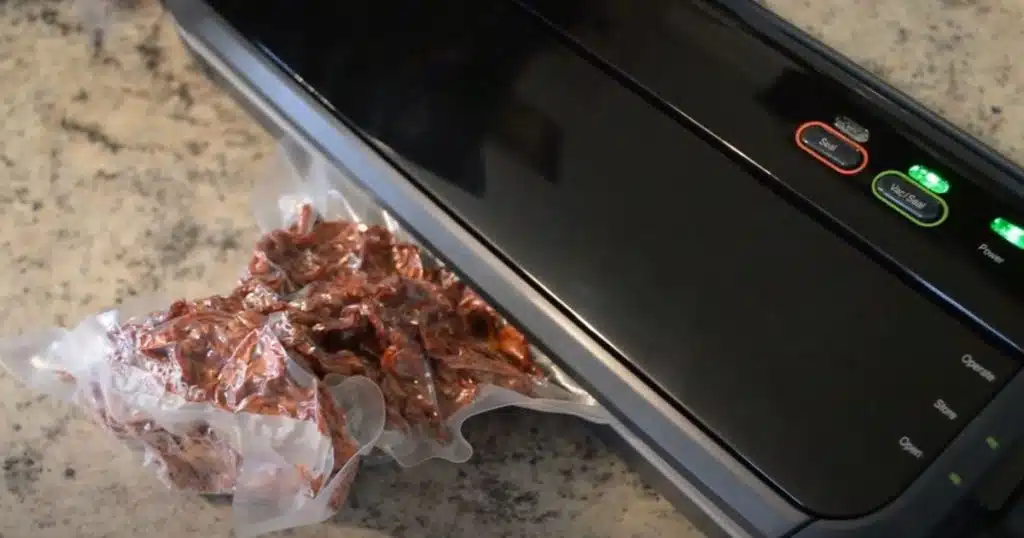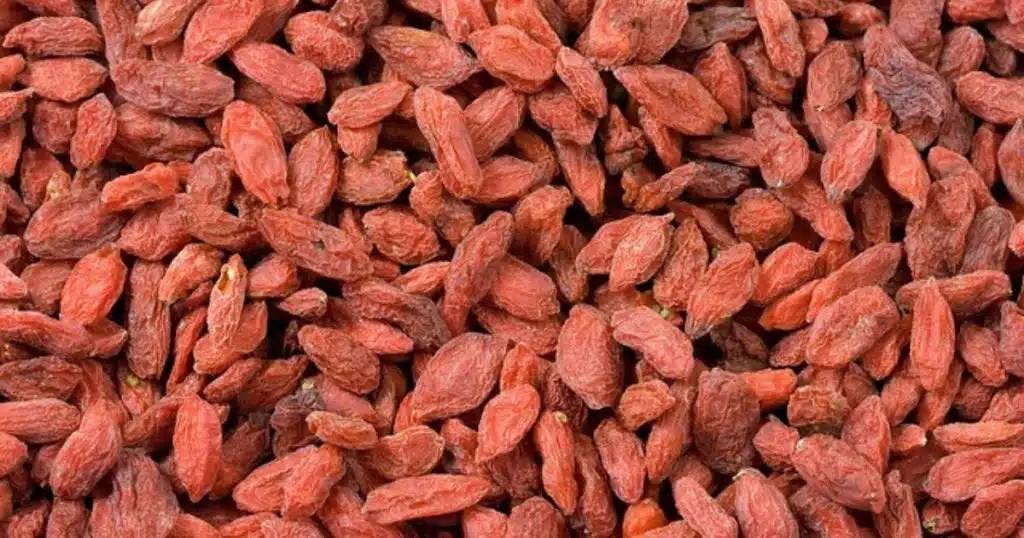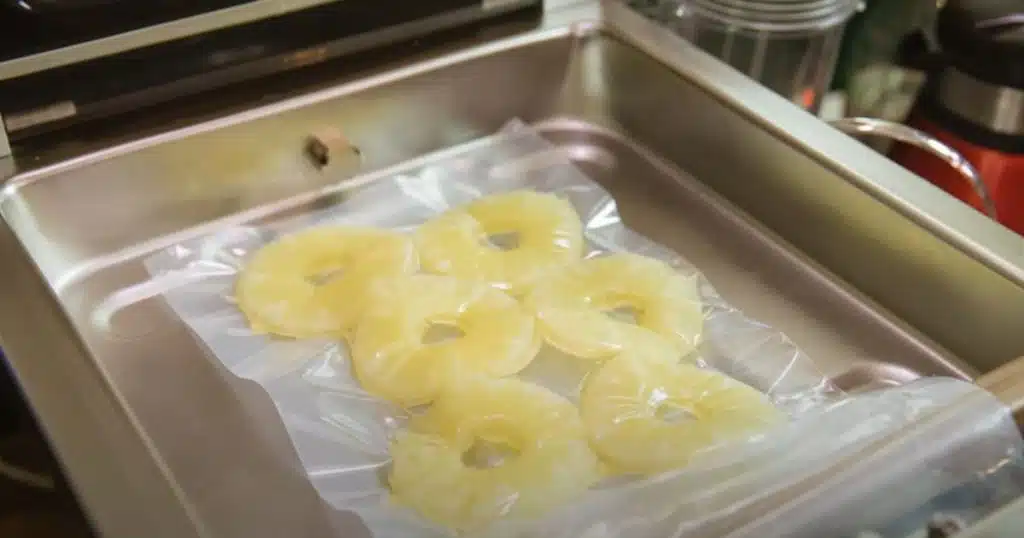As an Amazon Associate I earn from qualifying purchases.
Dehydrated food in vacuum-sealed bags can last up to 10 years. Proper storage conditions are essential for maximum shelf life.

Dehydrating food removes moisture, which prevents the growth of bacteria and mold. This preservation method extends the shelf life of various foods, making it ideal for long-term storage. Vacuum sealing further enhances this by removing air, which slows down oxidation and spoilage.
For those looking to build an emergency food supply or reduce food waste, vacuum-sealed dehydrated foods offer a practical solution. Optimal storage conditions include a cool, dark, and dry environment. By following these guidelines, you can ensure that your dehydrated food remains safe and nutritious for years. This method is both cost-effective and efficient for long-term food storage needs.
Benefits Of Dehydrated Food
Dehydrated food offers many benefits that make it a great choice. It is lightweight, long-lasting, and easy to store. It also retains most of its nutrients, making it a healthy option. Let’s dive deeper into the benefits of dehydrated food.
Nutritional Value
Dehydrated food keeps most of its nutritional value. Vitamins and minerals stay intact during the drying process. This means your snacks are still healthy and tasty.
Here is a table to show the nutritional value of some common dehydrated foods:
[wptb id="1174" not found ]Convenience
Dehydrated food is very convenient. It is lightweight, making it easy to carry. This is perfect for hiking, camping, and travel. There is no need for refrigeration, so it saves space in your fridge.
- Easy to pack
- No refrigeration needed
- Long shelf life
Dehydrated food also saves time. You do not need to wash, peel, or chop. Just open the bag and eat. This makes it ideal for busy days or emergency situations.

How Long Will Dehydrated Food Last in Vacuum Sealed Bags?
Dehydrated food is an excellent option for long-term storage due to its reduced moisture content, which significantly slows down spoilage. When vacuum sealed, the shelf life of dehydrated foods increases dramatically, as the absence of oxygen inhibits the growth of bacteria, mold, and yeast.
On average, dehydrated food stored in vacuum-sealed bags can last between 5 to 10 years depending on the type of food and storage conditions. Some foods, like vegetables and fruits, may last around 5 years, while items such as dehydrated meats or grains can potentially last up to 10 years or more when stored in a cool, dark place. The key factors that affect the longevity are the type of food, storage temperature, and humidity levels.
For maximum shelf life, it’s essential to keep the vacuum-sealed bags in a dry, temperature-stable environment, ideally below 70°F. Additionally, including oxygen absorbers in the packaging can further extend the lifespan of dehydrated foods, ensuring they remain fresh and nutrient-rich for years to come.
Shelf Life Of Dehydrated Food
Dehydrated food is a great way to extend the life of your favorite foods. It reduces the water content, making it less prone to spoilage. But how long does it last when stored in vacuum-sealed bags? Let’s dive into the factors that influence its longevity and the typical duration you can expect.
Factors Influencing Longevity
- Quality of Dehydration: Properly dehydrated food lasts longer. Ensure all moisture is removed.
- Storage Conditions: Store in a cool, dark place. High temperatures shorten shelf life.
- Vacuum Seal Quality: A good seal keeps air and moisture out. Double-check seals for leaks.
- Type of Food: Different foods have different shelf lives. Fruits and vegetables vary.
- Packaging Material: Use high-quality, food-grade vacuum bags. They provide better protection.
Typical Duration
The typical duration for dehydrated food in vacuum-sealed bags varies. Here’s a quick overview:
[wptb id="1175" not found ]Remember, these are just estimates. Proper storage and high-quality materials extend shelf life. Always check food before consuming. Look for signs of spoilage like off-odors or discoloration.
Impact Of Vacuum Sealing
Vacuum sealing is a technique that can significantly extend the shelf life of dehydrated food. It removes air from the storage bag, creating an airtight seal. This process helps in preserving the food’s quality and flavor.

Extended Shelf Life
Vacuum sealing can extend the shelf life of dehydrated food by several years. Without air, the growth of bacteria, mold, and yeast is inhibited. This keeps the food safe to eat for longer periods.
[wptb id="1176" not found ]Protection Against Contaminants
Vacuum sealing provides excellent protection against contaminants like dust and insects. The airtight seal prevents any external elements from entering the bag. This keeps the food clean and safe.
- Prevents moisture from entering the bag.
- Blocks oxygen, which can spoil food.
- Keeps out pests and insects.
This protective barrier helps in maintaining the food’s nutritional value and taste. It ensures that the dehydrated food remains fresh for consumption.
Storage Conditions
Dehydrated food lasts longer in vacuum-sealed bags under the right storage conditions. These conditions play a crucial role in maintaining food quality and safety. Below are the most important factors to consider.
Temperature Control
Temperature significantly affects the shelf life of dehydrated food. Store vacuum-sealed bags in a cool environment. Ideally, keep them at or below 60°F (16°C). Higher temperatures can speed up the degradation process.
Avoid storing the bags near heat sources like ovens or heaters. Fluctuating temperatures can cause condensation. This can lead to mold and spoilage.
[wptb id="1177" not found ]Light And Humidity
Light and humidity are also critical factors. Store the vacuum-sealed bags in a dark place. Light can degrade the food quality and cause nutrient loss.
Use a pantry, closet, or opaque storage bins. These options keep the light out. Humidity is another enemy. Keep the storage area dry. Moisture can penetrate even vacuum-sealed bags over time.
Use desiccant packs to absorb excess moisture. This helps extend shelf life. Ensure the storage area has good ventilation. Poor ventilation can lead to humidity buildup.
- Store in a dark place
- Keep the area dry
- Use desiccant packs
- Ensure good ventilation
By following these storage conditions, you can maximize the shelf life of dehydrated food in vacuum-sealed bags.
Signs Of Spoilage
Even the best vacuum-sealed bags can’t keep food fresh forever. It’s important to know the signs of spoilage in dehydrated food. Identifying these signs early can prevent foodborne illness. Look, smell, and feel your food before eating.
Visual Indicators
Check for changes in color and texture. Spoiled food often has dark spots or mold. Look for any moisture inside the bag. Moisture means the seal may be broken. Inspect the bag for any punctures or leaks.
[wptb id="1178" not found ]Smell And Texture
Smell the food after opening the bag. Spoiled food often has a bad odor. Fresh dehydrated food should smell neutral or like the original food. Feel the texture with clean hands. Dehydrated food should be crisp or dry. If it feels soft or sticky, it may be spoiled.
- Odor: Bad smell indicates spoilage.
- Texture: Should be crisp, not soft or sticky.
Best Practices For Storage
Storing dehydrated food in vacuum-sealed bags is great for long-term use. Follow these best practices to ensure your food stays fresh and lasts as long as possible.
Proper Sealing Techniques
Using the right sealing techniques is crucial. Ensure the bags are completely airtight. Here’s a step-by-step guide:
- Use a vacuum sealer to remove all air.
- Double-check the seal for any leaks.
- Label the bags with the date and contents.
Proper sealing prevents moisture and air from entering. This helps keep the food safe and fresh.
Ideal Storage Locations
The location where you store your vacuum-sealed bags impacts shelf life. Consider these ideal storage spots:
- Cool and Dark Places: Store in a pantry or cupboard away from sunlight.
- Consistent Temperatures: Avoid places with temperature fluctuations like garages or attics.
- Low Humidity: High humidity can compromise the vacuum seal.
Keeping your dehydrated food in the right environment is key. Protect it from light, heat, and moisture.
Faqs On Dehydrated Food
Dehydrated food offers a convenient way to store meals long-term. Many people have questions about its shelf life, especially when vacuum-sealed. Here, we answer some frequently asked questions on this topic to help you make the most of your dehydrated food storage.
Common Concerns
Many wonder how long dehydrated food lasts. Vacuum-sealed bags extend shelf life significantly. Here are common concerns:
- How long will it last? Dehydrated food in vacuum-sealed bags can last 2-5 years.
- Does vacuum sealing make a difference? Yes, it keeps out air and moisture, preserving the food.
- Can I store it anywhere? Store in a cool, dark place for best results.
Expert Tips
Experts suggest specific tips to maximize the shelf life of dehydrated food:
- Use Mylar bags with oxygen absorbers to extend shelf life further.
- Label each bag with the date of dehydration and contents.
- Check the seal periodically to ensure it remains intact.
Here’s a quick reference table:
[wptb id="1179" not found ]Following these tips ensures your dehydrated food stays fresh and ready to eat.
Ending Thought
Dehydrated food stored in vacuum-sealed bags can last for years. Proper storage conditions are essential. Keep them in a cool, dark place. Regularly check for signs of moisture or damage. This method ensures long-term food preservation, making it a reliable option for emergencies and outdoor adventures.
Amazon and the Amazon logo are trademarks of Amazon.com, Inc, or its affiliates.
Leave a Reply